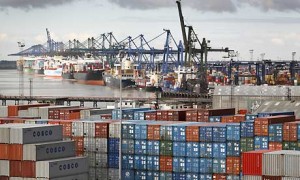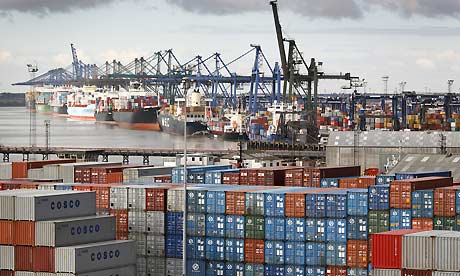 The UK trade gap narrowed during October, with the deficit between exports and imports shrinking from £10.1 billion to £9.7 billion. Chancellor George Osborne’s efforts to improve British exports appear to have been at least partially successful, with extensive trade outside the EU helping to fuel the closing of the gap.
The UK trade gap narrowed during October, with the deficit between exports and imports shrinking from £10.1 billion to £9.7 billion. Chancellor George Osborne’s efforts to improve British exports appear to have been at least partially successful, with extensive trade outside the EU helping to fuel the closing of the gap.
Osborne has set a 10-year export target of £1 trillion. Total exports declined from September to October, with the total value of UK exports recorded at £24.7 billion for the month of October. Imports also fell during the September-October period, with the total value of imported goods measured at £24.7 billion for the month.
Despite the reduction of the trade deficit, economists believe that efforts to increase exports have been largely unsuccessful. Both exports and imports have fallen in the past three months, creating the illusion of an increase in exports proportional to the country’s total quantity of imported goods.
Despite this, there are signs of improvement. Britain is involved in more trade with non-EU countries than at any point in the past three years. Non-EU exports reached £13.3 billion in October – an 11.7 per cent increase from figures recorded during the previous year.
Analysts believe that exports will eventually have to increase to match the growing demand for imported goods. With an economic recovery driven by consumer goods, British exports will need to expand to “bridge the gap” and match the large increase in domestic demand that is driving the economic recovery.
While the export of British-produced goods remains a concern, services are still an increasingly positive sector of the economy. The services export surplus remains a major boost for total UK international trade, with some analysts suggesting that the strong export of services creates an excellent starting point for the fourth quarter.





